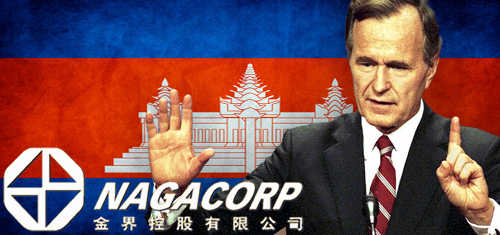 Cambodian officials say long awaited gambling law revisions won’t increase casino taxes but the country’s biggest casino operator isn’t so sure.
Cambodian officials say long awaited gambling law revisions won’t increase casino taxes but the country’s biggest casino operator isn’t so sure.
On Wednesday, Ros Phearun, deputy director of the Ministry of Economy and Finance, told reporters that the both his ministry and the Ministry of the Interior had vetted the government’s new casino bill. A joint working group from the two ministries is said to be considering a timeline for the bill’s submission to the cabinet and the Council of Ministers.
For the record, Phearun’s declaration that the gaming bill is nearing the finish line has become something of an annual exercise, always with the promise that victory could be declared by year’s end.
Phearun acknowledged that the delays have deterred unidentified international casino operators in Macau and Las Vegas from taking a serious look at the Cambodian market. The government recently announced plans to boost international tourist levels to 7.5m visitors per yea – 2m from China – and casinos will play a major role in making these plans a reality.
The Khmer Times quoted Phearun saying he hoped the finished bill would keep the rate “the same as what we impose now.” Cambodia’s opposition parties have long complained that the government’s share of casino revenue is too low, despite last year’s total rising one-third year-on-year.
But Timothy McNally, chairman of local casino operator NagaCorp, told the Hong Kong Economic Journal that he expects the new bill to include a gambling tax of between 5% and 7%. McNally said NagaCorp, which runs NagaWorld, Cambodia’s largest casino and the only one in the capital Phnom Penh, paid taxes of around 2% of its revenue last year.
McNally said NagaCorp was prepared to pay a higher tax rate and that any new tax burden wouldn’t deter the company’s expansion plans. NagaCorp is putting the finishing touches on its Naga2 project, a gaming and entertainment complex adjacent to NagaWorld. In December, NagaCorp pushed back the new venue’s opening date to the end of 2017 following multiple stop-work orders brought about by complaints from local Buddhist groups.
